- Home
- Paul Christopher
The Templar throne t-3 Page 4
The Templar throne t-3 Read online
Page 4
"E.T.," Holliday said finally.
"E.T.?"
"The Extra-Terrestrial. He was in the movie, the guy at the back of the room. One of the kids. Tyler, I think. He's been in all sorts of things since."
"The dark-haired one or the man sitting with him?"
"The dark-haired one."
"That's quite a memory you have," commented Sister Meg.
"C. Thomas Howell," said Holliday, getting it at last.
"Never heard of him."
"That's because you aren't a film buff."
"I assure you, nuns watch movies," the woman answered curtly.
"Nun movies?"
"There's such a classification?"
"Sure," Holliday said and nodded. "The Nun's Story, Sister Faustina, Agnes of God, Song of Bernadette, The Singing Nun, Lilies of the Field, Two Mules for Sister Sarah, The Bells of St. Mary's, Dead Man Walking. I could go on."
"Please don't," said Sister Meg. A young waiter appeared and they ordered. Meg asked for the goulash and Holliday chose the breaded veal with French fries.
"I had a Czech friend who once told me the only two words I need to be able to speak in Czech: hranolky and pivo. French fries and beer. At least that way you wouldn't starve to death or die of thirst."
"So what's next?" Sister Meg asked.
"After dinner?" Holliday replied. "After dinner we go outside for a nice walk in the evening air and see if there's a green late-model BMW in the parking lot with Austrian license plate MD 337 CA."
"Pardon?"
"Do you remember a man who came into the hotel after us when we checked in? He sat down and started to read the paper."
Sister Meg thought for a moment and nodded. "Vaguely. He had a shaved head. He was fat."
"That's the one."
"What about him?"
"He was in the Nordsee restaurant outside of Nuremberg. He had fish and chips and a Coke. Twice. Once in the restaurant as well as a take-out order."
"You're sure?"
"Positive."
"Maybe it's just a coincidence?"
"Somehow I don't think so."
6
The following morning they came down to the lobby and Holliday bought all-day transit tickets from the sleepy desk clerk. They went into the restaurant, ate breakfast, then left through the back exit by the bathroom rather than the way they'd come in through the lobby. They found themselves on Slavinskeho Street, the far side treed with scrubby cedars, the near side laid out in allotment gardens behind the hotel, each with its own little shed.
"What about the car?" Sister Meg asked.
"We're taking the bus instead," answered Holliday. "Make it a little harder for our bald friend." He checked the schedule beneath the protective plastic covering on the bus stop post and then looked at his watch. There was one due in less than five minutes. While they waited he looked back down the street, back toward the hotel.
"I still think you're being paranoid," said the nun. "Just because you saw the same man on the Autobahn doesn't prove anything. Why on earth would anyone want to follow us?"
"I don't know about you, but I've made a few enemies in my time."
"This is just silly. We're not in a James Bond movie," snorted Sister Meg.
"Do you always argue this much?" Holliday asked. The woman was like everyone's idea of a younger, smarter sister-a Lisa Simpson from hell.
The red and white bus appeared a few minutes later, pulling up so that they could get on through the middle set of doors. In Prague, Holliday knew, the front doors were only used as an exit. When the doors hissed open they stepped up, slipped their tickets into the time stamper, then waited for them to be spit out again. Holliday walked to the very rear of the bus and sat down as they moved off. Sister Meg dropped down beside him with a sigh.
"This really is idiotic," she muttered.
"Really?" Holliday asked. "If you check behind us you'll see a green late-model BMW with Austrian license plate MD 337 CA, am I right?"
Sister Meg turned her head to look. She paled.
"Dear God," she whispered.
"Told you," said Holliday.
The bus went down Slavinskeho Street, the gray-blue Art Deco bulk of the Barrandov Studios main building and the soundstages directly ahead of them. At the traffic circle they swung to the left past the guard kiosk and the barrier, then eased onto Filmarska Street, then Barrandovska. The houses on the left were set on large lots in an urban pine forest, most looking as though they dated from the 1930s, all looking expensive.
To the right the lots hung at the edge of the famous Barrandov cliffs, and in between the houses they could look to the northeast across the Vltava River, snaking through the smoggy haze far below. As they swung left and began to move down the steep hill, the houses on the cliff side became enormous stone and stucco mansions. Once upon a time they'd been built for executives of the enormous film studios, Prague's version of Beverly Hills.
"The whole area including the film studios was developed in the twenties and thirties by the Havel family for local bigwigs. During the war the Nazis took over and those big houses were the summer residences for all the party bigwigs, including Hitler. Then it was KGB bigwigs for a while, and now it's capitalist bigwigs again."
Sister Meg wasn't paying any attention.
"Who is that man?" Meg asked, her voice tense and almost accusatory.
"The bald fellow? He looks like a cop," said Holliday. "At a guess, I'd say he was contract help."
"What on earth is that supposed to mean?"
"He's not official. Some organization has hired itself a local pair of eyes. He's been following us across Germany. He was probably in France before that. He's probably following one of us or the other, not both."
"Because of a knight who died almost a thousand years ago? Ridiculous."
"I agree, but he's on our tail nevertheless."
"It has to be you. Something from your military past."
"I had some trouble with a neo-Nazi group a while back; almost two years ago now. It could be them, or what's left of them."
"There! You see? I knew it!" Sister Meg said triumphantly.
"On the other hand, it could also be the Vatican Secret Service."
"The Vatican doesn't have a secret service," said the nun, promptly and with conviction. "I should know."
"The Vatican certainly does have a secret service, and I do know, Sister. It's called Sodalitium Pianum. The friends of Pius X, the Pope it was named for. In France it's called La Sapiniere. It's been around since the beginning of the last century. It's a covert arm of the Vatican secretary of state's office."
"That sounds like some sort of stupid urban myth," scoffed the red-haired nun.
"Whatever the case, that guy in the BMW is no myth; he's real enough, isn't he?"
The nun didn't answer, crossing her arms in front of her, spots of color blooming on her cheeks.
The bus continued down the hill to the main four-lane expressway at the bottom. On the left, carved into the yellowish rock of the rugged cliff side, Holliday could see the man-made niche that had served as a guard booth during the war. Back in those days access to the big houses on the Barrandov hill had been restricted to the very few and there had been a barrier here. It was one of the few places in the city that still showed physical evidence of the Nazi occupation between 1939 and 1945.
The bus swung left and slipped onto the broad multilaned highway, threading through a couple of ramps and cloverleafs until they came out on Strakonicka Street. To the right Holliday could see intermittent views of the river, and to the left were railway yards, graffiti-covered rail and subway cars lined up waiting to be shunted in one direction or the other. Here and there they passed dark stucco buildings with either blue curtains or red.
"I always wondered what those places with the colored drapes were," said Sister Meg as the bus rolled past yet another red-curtained building. "They always seem so dark." A red neon sign in the front yard read PANSKYKLUB.
&
nbsp; "A pansky club is a brothel," explained Holliday. "A pani club is a brothel for women. Red for men, blue for women."
"I don't believe it."
"Prostitution isn't legal here, but it's not illegal, either. They've even got a brothel called Big Sister that's online, like a reality show."
"That's disgusting," said Sister Meg.
"That's free-market capitalism." Holliday shrugged and glanced over his shoulder. The BMW was still on their tail about three cars behind. Meg followed his look.
"What are we going to do about him?" she asked.
"We'll get off at the Smichov terminal and get onto the Metro. He'll have to park his car. Maybe we can lose him if we get lucky and catch a train right off."
The bus turned left down a side street and then right onto a wider roadway set with streetcar tracks. They passed a war surplus outlet in an old brick warehouse, a banner advertising genuine KGB fur hats strung across the grimy front entrance. They finally pulled up under a fiberglass canopy.
They climbed off the bus and dodged across several sets of streetcar tracks, cutting through the streams of sleepy-looking late commuters. There was no sign of the BMW or the bald man. They went through the glass doors, then down a wide set of steps to a Stalin-era platform, the letters of the station formed out of sheet steel and bolted to the concrete slab wall. There were two choices, the 1 side of the platform and the 2. The trains arriving on the left side of the platform went to the last station at Slicin, and the ones on the right went to Cerny Most.
"Which way?" Meg asked.
"Two," said Holliday. "Cerny Most."
A train pulled in on the Cerny Most side of the platform and whined to a pneumatic stop. The trains were silver-sided with red doors, and like subways around the world the cars were slathered with graffiti of varying quality.
Holliday looked back up the stairs as the doors hissed open.
"Shit," he muttered.
"Pardon?" Sister Meg said, a little shocked.
"Our large bald friend," said Holliday.
Puffing hard, the man from the BMW was charging down the stairs to the platform.
Holliday and the nun stepped into the car. Holliday leaned out until there was a bonging chime and a mellow, almost sedated female voice spoke over the public address system.
"Ukoncete nastup a vystup dvere se zaviraji." Finish embarking and disembarking, doors are closing. Holliday ducked his head back into the car. The doors slid shut against their rubber bumpers and the train droned into motion.
"Did he get on?" Sister Meg asked, gripping the bar beside him.
"The car behind us."
"Now what do we do?"
Holliday glanced up at the schematic system map above the doors. Four stops to the junction point of the A and B lines at the big Mustek station on the other side of the river. About eight minutes. The station they really wanted was one station farther on at Namesti Republiky.
"We'll do a Charnier," said Holliday.
"A what?"
"Alain Charnier, Popeye Doyle. Gene Hackman, Fernando Rey."
The nun looked at him blankly. "I have no idea what you're talking about."
"The French Connection?"
The nun shook her head. She was much too young, of course. Holliday sighed, suddenly acutely aware of the age difference between them.
"It's a scene in a famous movie. A French crook fools a cop into getting off a New York subway, then hopping back on at the last second."
"And we're going to do the same thing?"
"We're going to try."
A minute later they moaned smoothly into the next station, Andel. The doors slid open and Holliday started counting softly to himself.
"One Mississippi, two Mississippi, three Mississippi…" At fifteen the sleepy voice of the announcement was heard; at twenty the doors slid shut and the train moved off again. The same happened again at Karlovo namesti and Narodni trida, the next stations on the B line.
"Get off at the next stop and walk forward on the platform and slightly away," instructed Holliday. "When I say 'go' turn around and get back on the train as fast as you can."
The nun nodded silently. The train moved off.
"You've done things like this before, haven't you?" Sister Meg said quietly.
"Once or twice," admitted Holliday. A few moments later they pulled into the junction station at Mustek and the doors slid open. Holliday stepped out, putting his hand on Meg's back and propelling her onto the platform ahead of him. The lower-level platform was as bland as the one at Smichov, a set of stairs leading up to a flyover to the escalators taking you up to the A line level. There was a line of plain oval pillars running down the center of the platform.
Holliday started counting as they joined the herds of commuters heading toward the stairs, keeping his hand on Sister Meg's back, guiding her toward one of the pillars and circling behind it briefly. He watched as cue ball head blundered forward toward the stairs, searching the crowd for any sign of Holliday and the nun. He reached the stairs then stopped, turning his head left and right, looking more and more panicked with each passing second.
"Fourteen Mississippi, fifteen Mississippi…"
The chime bonged its ding-dong-ding three-note refrain.
"Go!" Holliday urged, pushing Meg back toward the waiting subway train. She gave him a single, over-the-shoulder nasty look then did as she was told. Holliday followed. Out of the corner of his eye he caught sight of the bald man as the man spotted him. The fat man surged forward against the flow of the crowd as the announcer went through her recorded advisory. Meg stepped through the doors of the car ahead of the one they'd been traveling in with Holliday right behind her. Cue Ball didn't stand a chance. The doors closed with the bald man lumbering forward, elbowing people out of the way. He was still ten feet away when the train began to move. He stood impotently on the other side of the doors as Holliday gave him a smile and a little finger-waggling wave, just the way the French crook had done in the movie.
"Bye-bye," Holliday said and grinned.
They headed into the tunnel and disappeared.
7
Cardinal Secretary of State Antonio Niccolo Spada sat in the ornate carved oak throne behind his equally ornate fourteenth-century Spanish desk. Across from him Father Thomas Brennan, head of the Vatican Secret Service, Sodalitium Pianum, paced back and forth across the immense silk rug that covered the floor in Spada's office.
The cardinal's workplace was located on the top floor of the Governatorato, the Vatican Civil Administration Building located directly behind St. Peter's Basilica. The lavish fourth-floor corner office also looked out across the Viale Osservatorio to the San Pietro Monument and the walled enclosures of the Papal Gardens. Next to the Pope's own audience chamber there was no more important place in the Vatican.
The voice of God might well whisper orders directly into the Holy Father's ear, but the orders were interpreted and carried out by Antonio Spada. The Pope was God's emissary on Earth; Spada was His enforcer. The baker's son from the village of Canneto di Caronia on the road to Messina had come a long way, and not just from Sicily.
"I think it's a mistake," said Brennan, pacing. As he walked back and forth he puffed on his inevitable foul-smelling Macedonia cigarette, spilling a continuous shower of ash across the carpet, even though the cardinal had a conspicuously placed crystal ashtray on the desk for his guests.
"Why?" Spada asked.
"Because Holliday is too far above the horizon. He has friends in high places, he knows people."
The cardinal shrugged. "Accidents happen."
"Accidents that happen to men like Holliday are investigated," argued Brennan.
Spada allowed himself a small, knowing smile. "You're frightened of this man."
"You're bloody right I am, begging your pardon, Eminence," Brennan said and nodded, continuing his pacing. "He's dangerous. He upsets the balance of power, he interferes where he has no business." Brennan paused. "Not to mention the fact tha
t he's caused a great deal of trouble for us in the past. And a great deal of money as well, I might add."
"All the more reason for us to rid ourselves of him now," murmured the cardinal.
"But why?" Brennan insisted. "He and the woman are looking for a box of relics that probably don't even exist." The priest eyed his superior. "Besides which the Church forbids the worship of such things. The twenty-fifth session of the Council of Trent, I believe. As are the purchase or sale of such relics."
"Don't presume to teach me about Church dogma, Father Brennan," the cardinal said coolly.
"Then tell me why we're interested in this so-called True Ark or whatever it is."
"A relic is as a relic does, Father Brennan," said the cardinal obscurely.
Brennan frowned. "You'll have to explain that, I'm afraid," said the priest.
"The True Ark is said to contain the Holy Grail, the Crown of Thorns, the Holy Shroud, and the Ring of Christ."
"The fecking jackpot then," snorted Brennan.
"Nevertheless," said Spada.
"You can't believe it's true," said Brennan, astounded.
"It doesn't matter what I believe, Father Brennan," the cardinal answered. "Perception is everything. It's like the story of the emperor's new clothes: if enough people say the emperor is wearing silk, then he might just as well be wearing silk. If enough people say Paris Hilton is beautiful, then she is beautiful-even though it's patently untrue. She's far too skinny, she's flatchested, her nose is too large and her ankles too small." The secretary of state paused. "Whatever they find, we must have. That rag in the cathedral in Turin has been scientifically proven to be a fraud, but that doesn't stop tens of thousands coming to see it."
"If they find anything," grumbled Brennan. He butted his cigarette in the ashtray and lit another. Cardinal Spada let out a long-suffering sigh. He was tired of discussion. Why didn't Brennan just do as he was told?

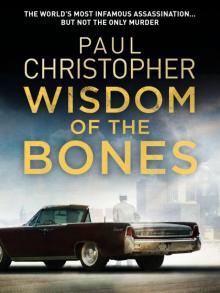 Wisdom of the Bones
Wisdom of the Bones The House of Special Purpose
The House of Special Purpose The Second Assassin
The Second Assassin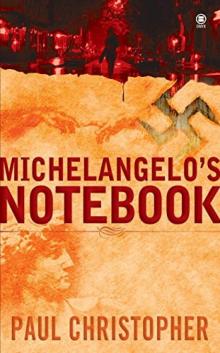 Michelangelo's Notebook
Michelangelo's Notebook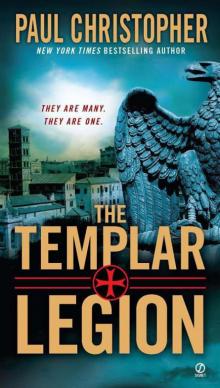 Templar Legion
Templar Legion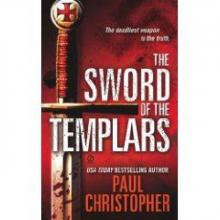 The Sword of the Templars t-1
The Sword of the Templars t-1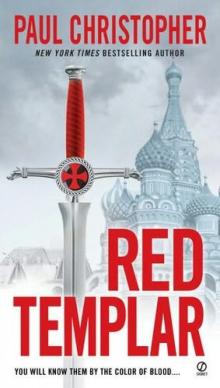 Red Templar
Red Templar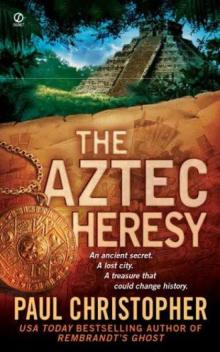 The Aztec Heresy
The Aztec Heresy The Templar Legion
The Templar Legion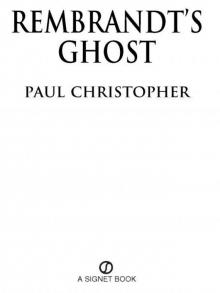 Rembrandt's Ghost
Rembrandt's Ghost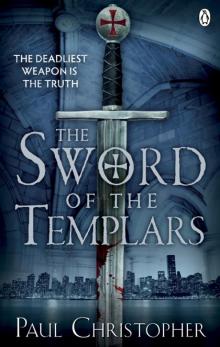 Sword of the Templars
Sword of the Templars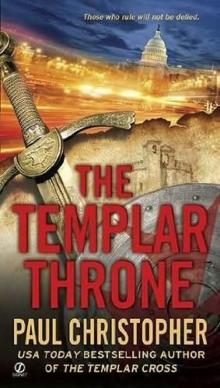 The Templar throne t-3
The Templar throne t-3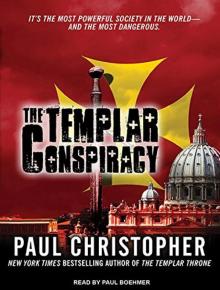 The Templar Conspiracy
The Templar Conspiracy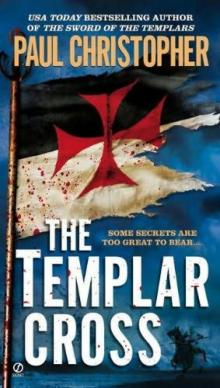 The Templar Cross t-2
The Templar Cross t-2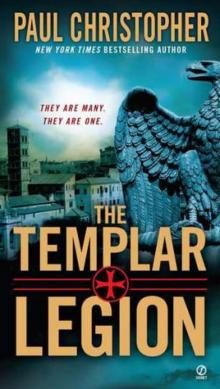 The Templar Legion t-5
The Templar Legion t-5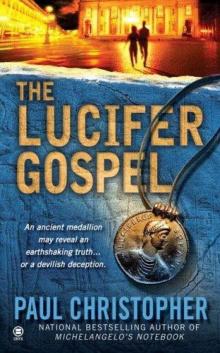 The Lucifer Gospel
The Lucifer Gospel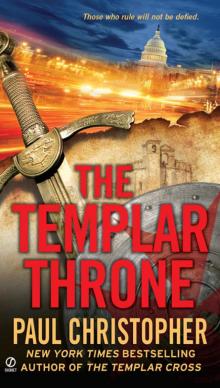 Templar Throne
Templar Throne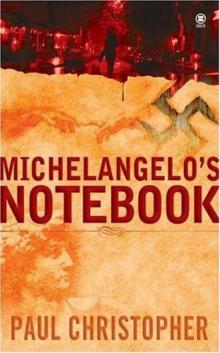 Michelangelo_s Notebook fr-1
Michelangelo_s Notebook fr-1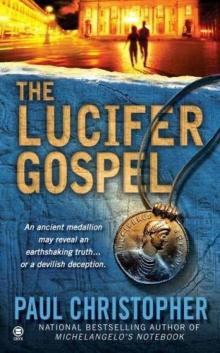 The Lucifer Gospel fr-2
The Lucifer Gospel fr-2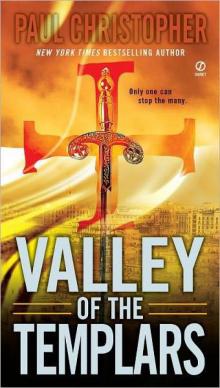 Valley of the Templars ts-7
Valley of the Templars ts-7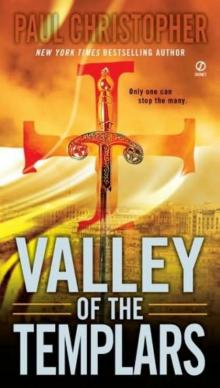 Valley of the Templars
Valley of the Templars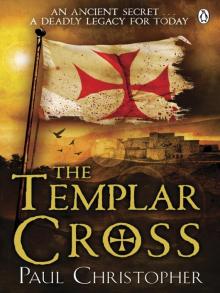 Templar Cross
Templar Cross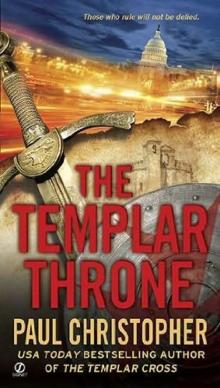 The Templar Throne
The Templar Throne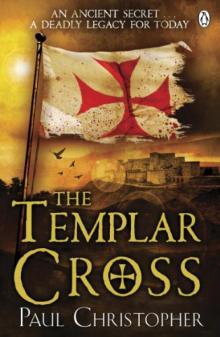 The Templar Cross
The Templar Cross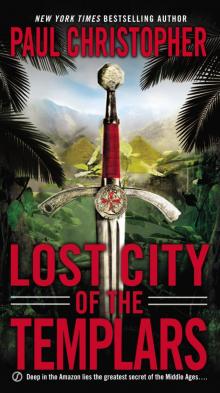 Lost City of the Templars
Lost City of the Templars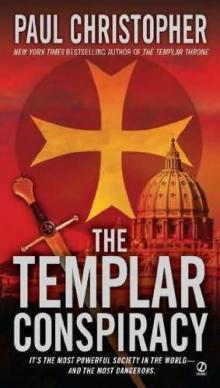 The Templar conspiracy t-4
The Templar conspiracy t-4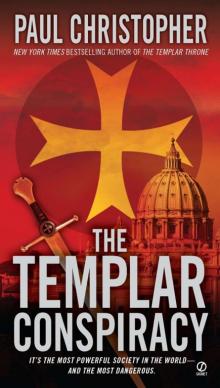 Templar Conspiracy
Templar Conspiracy